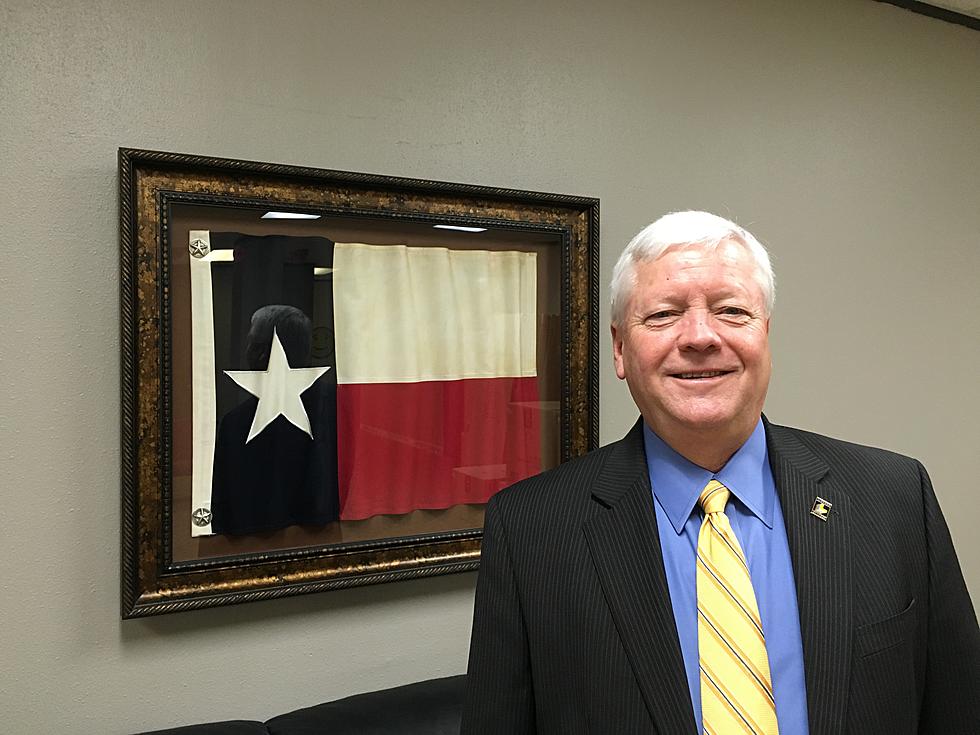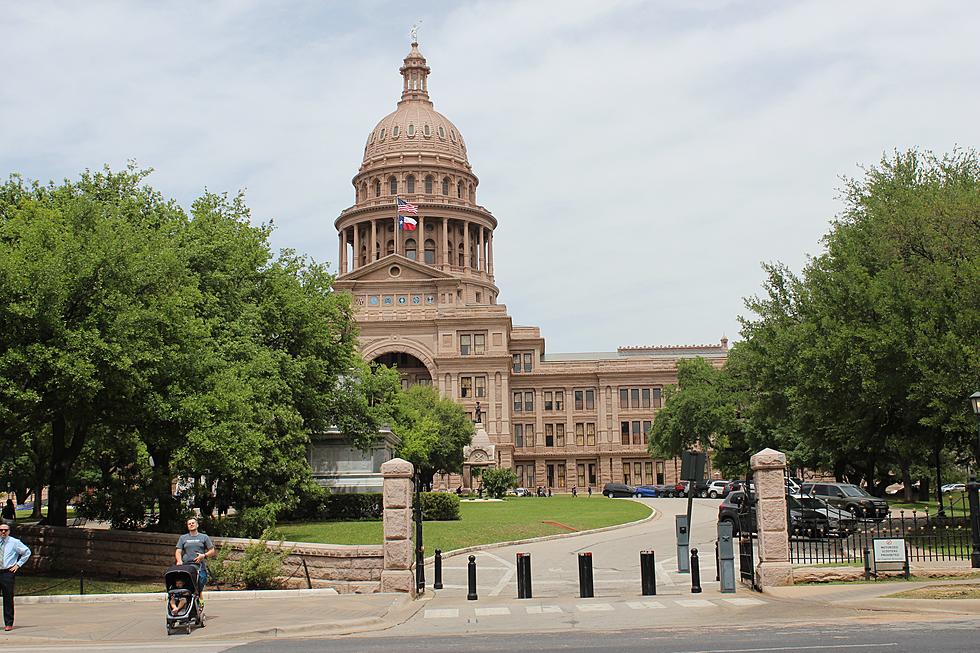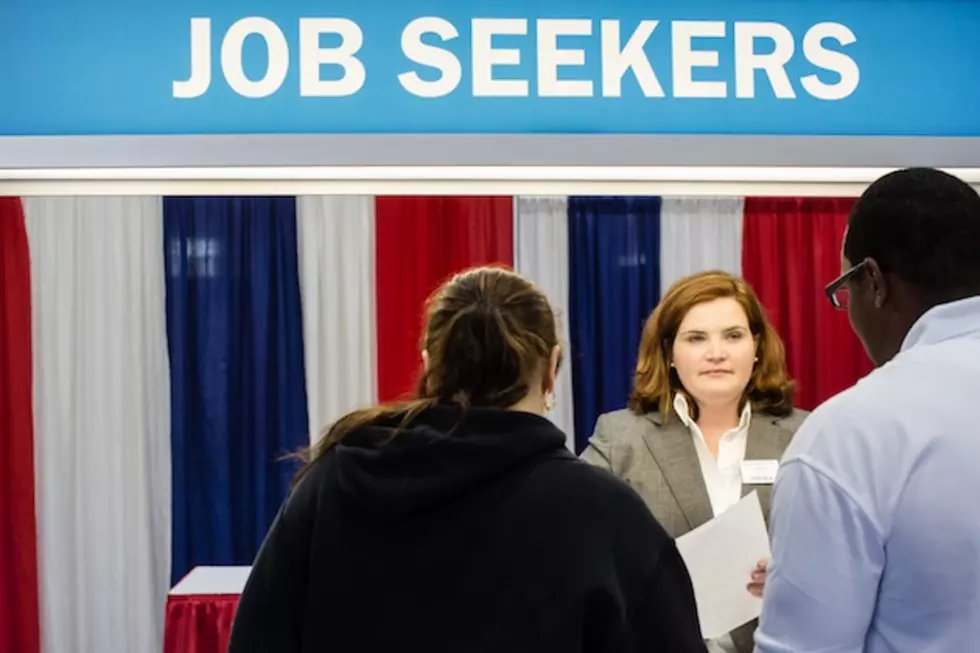
Chad’s Morning Brief: Rick Perry Writes About Online Gambling, Depressing Unemployment Figure and Other Top Stories
Here is your Morning Brief for the morning of May 22, 2014. Give me your feedback below and tune in to The Chad Hasty Show for these and many more topics from 8:30 to 11am. Remember, you can listen online at KFYO.com or on your iPhone/Android with the radioPup App.
Important Election Dates:
Early Voting for GOP and Dem. Primary Runoff: NOW – May 23
Election Day for GOP and Dem. Primary Runoff: May 27
Election Day for Lubbock City Council District 3 Runoff: June 14
Online Gambling
The debate over online gambling continues to rage in Congress and throughout the country. While most arguments against online gambling are the same arguments used against casino gambling, Governor Rick Perry writes for National Review that he believes there is another reason to be against it.
The debate over Internet gambling has focused on the negative effects that widespread Internet gambling will have on families, state economies and state budgets, and the policing of criminal enterprises and terrorist organizations. But aside from these important concerns, there is a fundamental question that affects the future of Internet regulation and that supporters of Internet gambling are trying to hide and obfuscate.
Internet-gambling proponents are seeking to create, for the first time, formal government oversight and enforcement of a specified class of Internet content. The expansion of Internet gambling will result in the expansion of government and raise more questions about the government presence in our daily lives.
At both the state and the federal levels, Internet-gambling proponents are aggressively lobbying to establish the most far-reaching government regulations of the Internet. One bill calls for the creation of an Office of Internet Gambling Oversight in the Department of the Treasury and would “empower the federal government for overall oversight.” Another calls for an Office of Internet Poker Oversight.
We already know the government has tracked our political activities, monitored our phone calls, and will soon have access to our most personal medical information. Once the government starts actively monitoring one aspect of our Internet commerce, is it credible to believe that it will stop there?
This may start with monitoring age and location for purposes of regulating Internet gambling, but it will not stop there. The gambling industry is already heavily regulated, and rightfully so. Legalizing Internet gambling would expand this heavy regulation to the Internet and create a new breed of government Internet-content cops.
I believe in the U.S. Constitution and in the rights of states as spelled out by the Tenth Amendment. But by its nature, the Internet is a global network transcending state boundaries. Fifty states with 50 different laws regulating the Internet would put up digital roadblocks at every state border, putting a huge burden on commerce.
Let’s look at it another way. What if the FAA didn’t exist and there were 50 different sets of aircraft regulations? Airplanes would have to stop at every state border to ensure they were in compliance with the next state’s rules. The cost of compliance with every state’s rules would be burdensome and the cost of air travel would skyrocket. The same applies to Internet gambling. State-by-state regulations would smother innovation and growth.
It goes without saying that I think that the federal government ought to stay out of states’ business as much as possible. But, for a reason, the Constitution gives Congress the power to regulate commerce among the states. The Founding Fathers believed, as I do, in limiting federal powers, but they also recognized that we must take care to avoid barriers to commerce between the states for our state and national economies to flourish.
The proponents of Internet gambling are at the edge of a slippery slope, the bottom of which is a Federal Department of Internet Regulation with broad and intrusive powers. Internet-gambling advocates like to style themselves as “defenders of the Internet,” but their legislative solutions tell another story.
What do you think about Governor Perry's argument against?
Unemployment
The Weekly Standard is reporting on a new poll that is bad news for our economy. A new Harris poll has found that nearly half of Americans who are unemployed have just given up.
A new poll suggests that finding employment, particularly for the long-term unemployed, continues to be a struggle for Americans. The poll, conducted by Harris Poll on behalf of Express Employment Professionals, asked questions of 1,500 unemployed adult Americans last month.
“This survey shows that millions of Americans are at risk of falling into the trap of prolonged unemployment, and it should give policymakers a greater sense of urgency to focus on the singular goal of creating jobs," said Bob Funk, CEO of Express and a former Chairman of the Federal Reserve Bank of Kansas City, in a release. "We can take heart that in these difficult times the American spirit of confident hopefulness endures, but we can’t accept this status quo—not for our country, not for our unemployed neighbors.”
Some of the key findings:
47 percent agree with the statement, “I’ve completely given up on looking for a job.” (7 percent said they “agree completely,” 7 percent “agree a lot,” 15 percent “agree somewhat,” and 18 percent “agree a little.”)
60 percent say looking for work has been harder than expected. 10 percent say it’s been easier than expected.
Nevertheless, 91 percent agree with the statement, “I’m hopeful that I will find a job I really want in the next six months.”
Additionally, 46 percent of the unemployed respondents reported not having had any job interviews in the prior month and 23 percent report their last interview was in 2012. The poll also shows that a significant percentage of the unemployed are not currently receiving jobless benefits. Only 20 percent said they were currently receiving unemployment compensation. But among those receiving government assistance, the poll suggests the aid may be diminishing their incentive to find employment:
However, in a response that raises issues about whether unemployment compensation should be extended or allowed to run out, 82 percent of those receiving benefits said if their unemployment compensation were to run out prior to their finding a job, they would “search harder and wider for a job.” Only 18 percent say they would “be in such despair that I will give up looking for work altogether.”
48 percent agree that they “haven’t had to look for work as hard” thanks to unemployment compensation.
72 percent agree that compensation has been a “cushion” and 62 percent agree with the statement, “It has allowed me to take time for myself.”
The survey also shows that the unemployed are predominantly male—57 percent vs. 43 percent female—and also skew younger. More than half of all unemployed are under 40 and one third are under the age of 30. Finally, 45 percent of respondents say the economy is "most responsible" for them being out of work, 36 percent cite "themselves" as being responsible, and 18 percent blame the government for their lack of employment.
Other Top Stories:
These and many more topics coming up on today’s edition of The Chad Hasty Show. Tune in mornings 8:30-11am on News/Talk 790 KFYO, streaming online at kfyo.com, and now on your iPhone and Android device with the radioPup App. All guest interviews can be heard online in our podcast section after the show at kfyo.com.
More From News/Talk 95.1 & 790 KFYO









